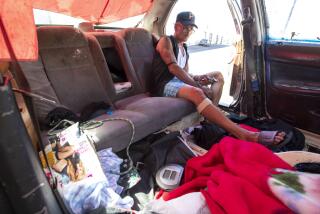Tranquillity Reigns in Vientiane
- Share via
VIENTIANE, Laos — The sun dips low on a crisp afternoon, blazing red and gold across the surface of the Mekong River. The stillness is broken only by the distant growl of a boat’s diesel engine.
Life in Vientiane is gentle and slow-moving, just like the Mekong.
The former French colonial capital was anything but tranquil in the 1970s. To the east, war was raging in Vietnam between communist forces and the United States.
In Laos itself, a secret war financed by the United States was being waged against the communist Pathet Lao forces.
Vientiane was full of CIA operatives, tawdry bars and brothels.
But these days, although the hammer and sickle flags fluttering along tree-lined avenues remind visitors that Laos is one of the few remaining communist governments, the city is prowled mostly by foreign backpackers, chased by three-wheeled motorcycle taxi drivers looking for fares.
Young tourists congregate in the coffeehouses and guesthouses along the Mekong. Talk ranges from the safest routes for travel outside the capital to the price of a bus ticket to Bangkok, Thailand.
Although conceding the city’s loveliness, most tourists consider Vientiane just a stop on their way to someplace else, usually Luang Prabang, an idyllic ancient town in the north known for its rolling hills and Buddhist temples.
On a recent morning, Line Juvit, 22, a student from Oslo, Norway, stood at the counter of a Vientiane guesthouse, looking for an inexpensive place to stay.
Outside, Buddhist monks, draped in saffron robes and with their heads shaved, walked silently past in the golden light.
“I am just passing through on my way to Luang Prabang,” Juvit said.
More to Read
Sign up for The Wild
We’ll help you find the best places to hike, bike and run, as well as the perfect silent spots for meditation and yoga.
You may occasionally receive promotional content from the Los Angeles Times.






